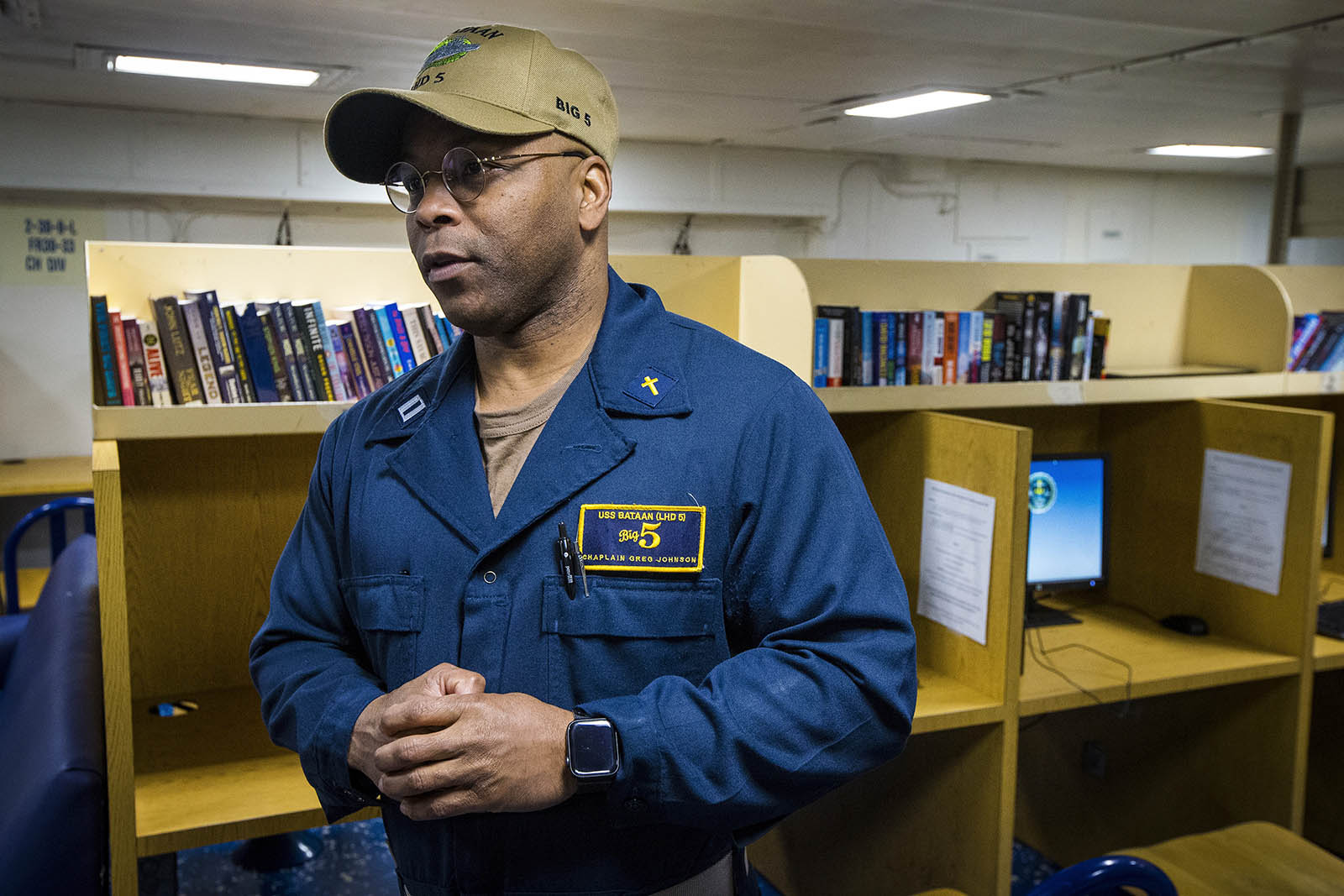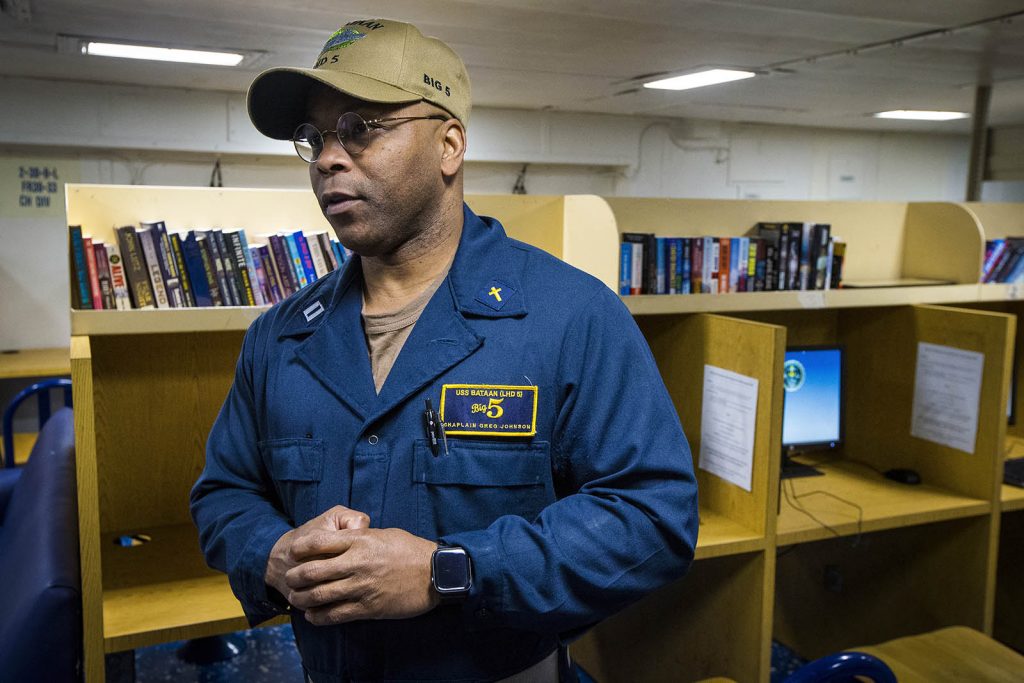
(RNS) — Not since the end of the Cold War has the Department of the Navy wanted to increase the size of the Chaplain Corps: Those religious ministry professionals dedicated to the well-being of sailors, Marines, Coast Guardsmen and their families. And yet, that’s where we are today: All three sea services want and need more chaplains.
It’s not that the Navy, Marine Corps and Coast Guard have prescribed religion. The federal government and the U.S. Military, while deferential, are agnostic to faith and religion. This is as it should be; one’s faith and one’s soul are too important to allow the government to have a say. It’s personal, and it’s sacred.
Our leadership, though, recognizes that when human beings attend to all aspects of their humanity — mind, body and spirit — they are happier, more resilient and more ready to face the challenges of military service.
Sound like a concept cooked up by the Chaplain Corps or maybe a philosophy class? Not so. More than 30 years of peer-reviewed research from Columbia University, Duke and Harvard in mental health, epidemiology and spirituality demonstrate the value of the spiritual for human flourishing.
For example, those engaged in spiritual practices (including religion) are 50-80% less likely to die by suicide, 60% less likely to suffer depression, 80% less likely to suffer addiction and 70% less likely to participate in risky behaviors.
Dr. Lisa Miller, of Columbia University, has spent a career researching how spiritual practices impact depression and other disorders, most notably the rise in suicide among young adults. She states that there is no protective factor identified by the clinical sciences that in scope or scale compares to the protective benefits of religious and spiritual engagement against suicide.
Navy Chaplain Lt. Greg Johnson speaks about his role aboard the USS Bataan on Tuesday, March 14, 2023. Johnson, who joined the Bataan in December, says, “A lot of people have resiliency. They just don’t know how to tap into it.” Navy chaplains minister to all sailors no matter their religious affiliation. (AP Photo/John C. Clark)
Our leaders’ desire for more chaplains in the Navy, Marine Corps and Coast Guard is purely a matter of taking care of people. Chaplains have proven themselves as a resource to strengthen the force and are outstanding partners with mental health professionals to get people the help needed should they find themselves in crisis. More chaplains simply means more care for our people.
Throughout our history, America’s religious organizations have encouraged the Navy to adequately provide for the religious needs of sea service personnel, but we cannot provide for their needs where there are no chaplains. In order to care for the Navy, Marine Corps and Coast Guard, the Navy needs chaplains, and, despite the Department of the Navy asking for more, the recruiting deficit is extreme.
In this fiscal year, the Navy needs 70 new chaplains for active duty. So far, we’ve only brought 18 on board. For the Naval Reserve, we need 20 new chaplains, but only 12 have become part of the team. This puts the Navy Chaplain Corps at a disadvantage in caring for the religious and spiritual needs of sailors, Marines, Coast Guardsmen and their families.
I am appealing to America’s religious organizations and their leaders to prioritize ministry to the Americans who have chosen to serve our nation. The bulk of our “flock” are 18- to 25-year-olds, often faced with adult challenges for the first time in their lives. We need more chaplains to care for these young people and their families.
I consider these young people America’s greatest treasure, and it is a sacred honor and privilege to care for them. Please, send the Navy more of your best and brightest to serve as Navy chaplains.
(Rear Admiral Gregory N. Todd is chief of Navy Chaplains. Learn more about becoming a Navy chaplain at 1-888-NavyCHC. The views expressed in this commentary do not necessarily reflect those of Religion News Service.)

